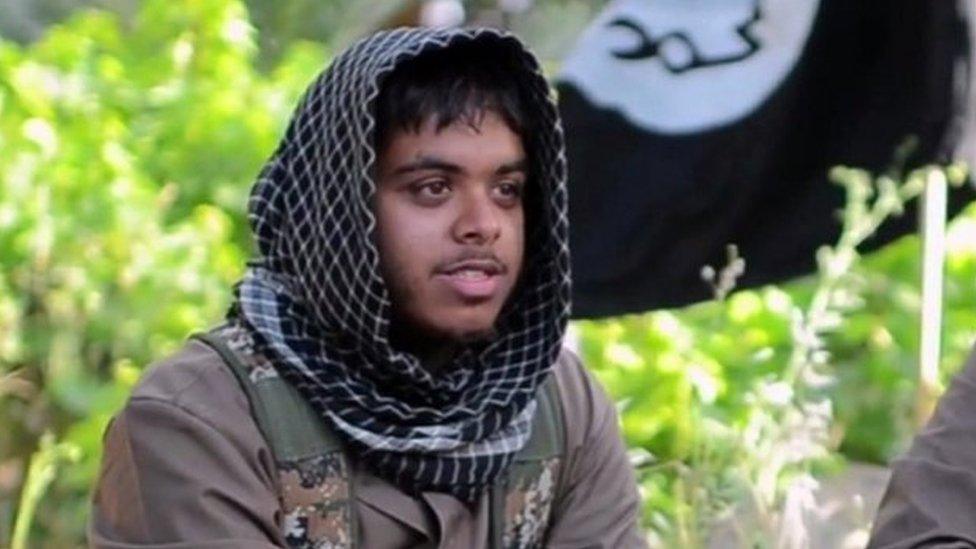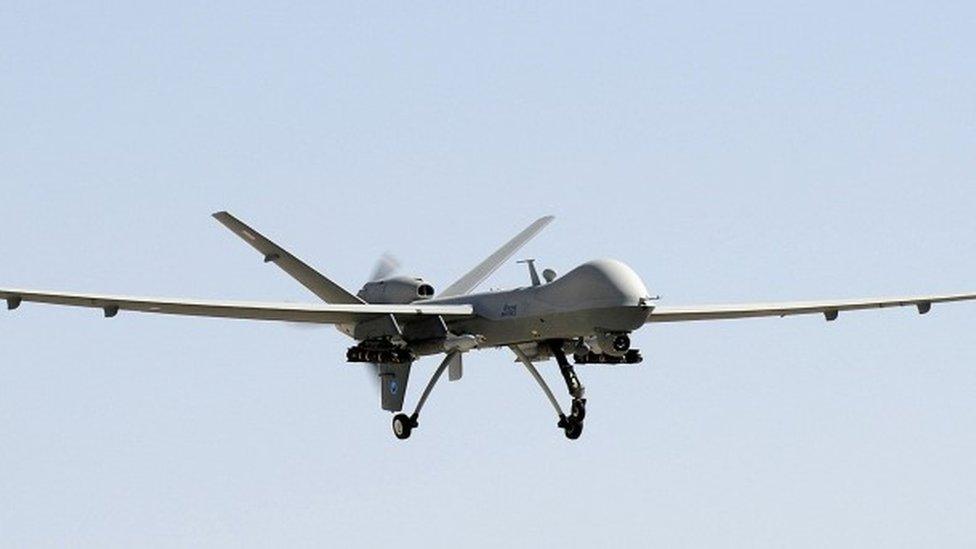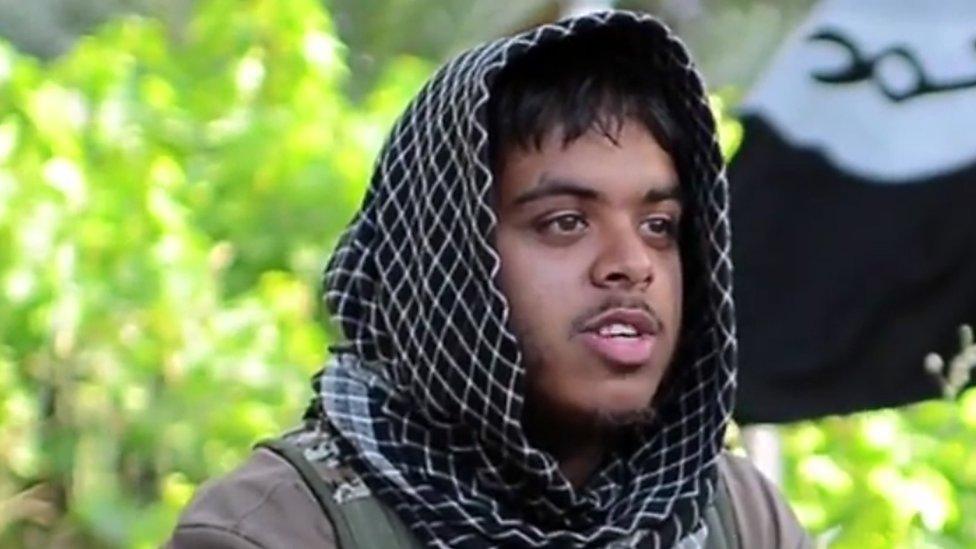'Lack of transparency' over drone strike, committee finds
- Published

It is thought Reyaad Khan travelled to Syria to fight for so-called Islamic State late in 2013
The government has been criticised for a lack of transparency over its decision to kill Briton Reyaad Khan with a drone strike in Syria in 2015.
An Intelligence and Security Committee inquiry into the incident says it was not allowed to see some key documents.
Committee chairman Dominic Grieve told the BBC killing someone outside normal legal process was "a serious issue".
The government said showing the documents to the committee would have gone beyond agreed parameters.
The committee agreed the threat from Khan was serious, based on the intelligence reports it was shown. But it said it was unable to assess how ministers had decided that threat equated to an armed attack by a state.
Members said they were not shown the submission which ministers received on 1 April 2015, which would have helped them to learn how ministers made their decision.
The government said this would have taken the inquiry beyond what had been agreed, which was to focus on the nature of the threat posed by Khan.
But the committee concluded that with no knowledge of what the submission contained, it could not be sure ministers were given the full facts.
The 21-year-old from Cardiff was thought to have travelled to Syria to join so-called Islamic State in late 2013 and appeared in a 13-minute IS propaganda video the following year.
'More transparent'
Speaking on Radio 4's The World at One, Mr Grieve said: "I'm not hinting that something improper was done, I'm just saying that unfortunately we didn't have the material on which we could have given that statement.
"Just because somebody is dangerous does not mean that you are justified in killing him, which means that you've got to show that it was reasonable, necessary and proportionate to take that action.
"It would have been very good from our point of view, particularly because of the importance of this issue, to have been able to give that assurance and what we're saying in this report is that we just weren't able to do that."

RAF Reaper drones joined Tornado jets for surveillance and air strikes soon after Parliament authorised military action against so-called Islamic State in Syria
Khan was killed in an RAF drone strike on a vehicle in which he and two other men were travelling in Syria on 21 August 2015 - the first time such an action had taken place outside regular military conflict.
The committee investigated the intelligence basis for the strike but not its legal basis, which is being looked at by others.
It submitted its report to the government in December and wanted it published before Parliament dissolved.
The report said: "It is to the Agencies' credit that their investigation of Khan's activities led to the disruption of the attacks he planned, thereby avoiding what could have been very significant loss of life.
"Nevertheless our inquiry into the intelligence on Khan has revealed wider policy issues surrounding the strike itself - notably around the ministerial decision-making process and the assessment of collateral damage.
"The government should be more transparent about these matters and permit proper scrutiny of them."
'Unprecedented'
Kate Higham, assassinations project lead at human rights organisation Reprieve, said: "David Cameron announced in 2015 that the UK was pursuing a policy of lethal strikes outside of war zones.
"He called this a 'new departure' for Britain and yet, as this report shows, the government continues to block Parliament and the public from meaningful debate about it."
The committee was shown 25 intelligence reports and two assessments, which left it in no doubt that Khan posed "a very serious threat" to the UK as a prolific attack planner and recruiter.
He was involved in directly inciting individuals to carry out attacks against and inside the UK, and also provided instructions on the manufacture of bombs and suggested possible targets, including public events.
The range and pace of threat from Khan and others in his network was described as "unprecedented".
The government's position is that if an individual posed an imminent threat at the same level as an armed attack by a state, then it has the right to take military action.
- Published11 January 2017

- Published2 September 2015
